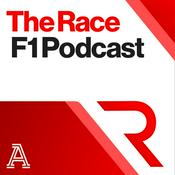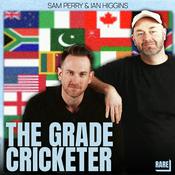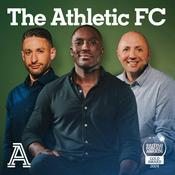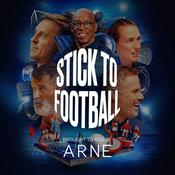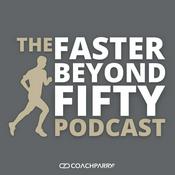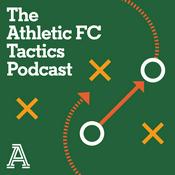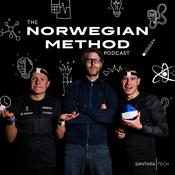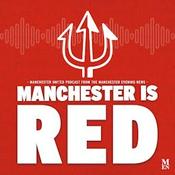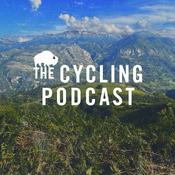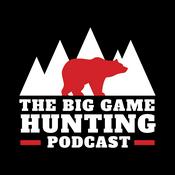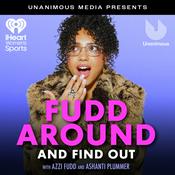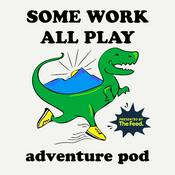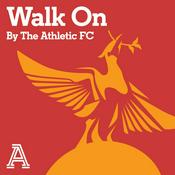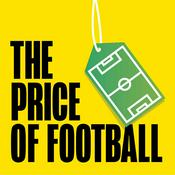203 episodes
The 2025 Gravel Ride Holiday Gift Guide: Tools, Gear & Wellness Every Rider Will Love
2025/11/25 | 28 mins.This week on the show, Craig rolls solo for a special 2025 Gravel Ride Holiday Gift Guide — a curated list of the gear, tools, apparel, and wellness upgrades that have genuinely made a difference in his riding this year.
From multi-tools that saved a ride on Mt. Tam, to suspension stems that smooth out rough descents, to merino layers that work year-round, and even at-home blood testing that helps older athletes stay healthy — this list is built from real-world use, real stories, and real benefit.
Whether you're buying for a cyclist in your life, or you are the cyclist in your life, this guide captures a range of thoughtful gifts across all budgets.
Products featured:
Wolf Tooth — 8-Bit Pack Pliers, Color Shop accents
Redshift Sports — ShockStop Pro Stem, Arclight Pro Clipless Pedals
Pinebury — Merino Wool Tee
Topeak — JoeBlow Floor Pump, Digital Mini Pump, Torque Ratchet Set
Dynamic Cyclist — Stretching & Strength Program (THEGRAVELRIDE - 10% off)
MTB Hopper — Core Balance Board
Rhythm Health — At-home blood testing (Use my code VGVSY1GY for $20 off)
Affiliate links may be used at no additional cost to you — they help keep the podcast rolling. Thanks for supporting the show!- Exploring Aurora's unique multi-day rally format and the people bringing gravel culture to Cyprus, Switzerland, and Portugal.
This week, we're heading overseas for a new kind of gravel adventure. The Aurora Gravel Rally Series blends the spirit of exploration with the thrill of competition — taking riders across stunning landscapes in Cyprus, Switzerland, and Portugal.
Craig sits down with Fiona, Race Director for the Portugal event, to unpack what makes the Aurora Gravel format so special. From timed rally segments to all-inclusive multi-day experiences, Fiona shares how Aurora is redefining what it means to race and travel on gravel.
Expect insights on:
How rally-style racing works and why it opens gravel to more riders
The cultural flavor of each European stop — from the Mediterranean to the Alps
Aurora's vision for balancing community, challenge, and discovery
What makes Portugal a hidden gem for gravel cyclists
If you've ever dreamed of combining racing with real adventure, this one's for you.
Links Mentioned: 🌍 Aurora Gravel Website 🔧 Logos Components – Fall Super Sale (Sponsor)
Credits: Hosted by Craig Dalton Produced by The Gravel Ride Podcast
Transcript:
Craig Dalton (00:29)
Today's episode is brought to you by our longtime friends at Logos Components, who are making their award-winning wheels more accessible than ever, with discounts up to 40 % in their entire lineup during the fall super sale, now through November 2nd. If you're a regular listener, you may recall an episode I did with Logos co-founder and longtime podcast contributor, Randall Jacobs, talking about what makes a great wheel set.
If you haven't heard it, it's definitely worth a listen, especially if you're in the market for new wheels. In that episode, Randall laid out Logos' core philosophy. Start with proven open standards and non-proprietary parts for unmatched durability and serviceability. Then push the boundaries with advanced materials, precision manufacturing to achieve high strength at impressively low weights. Logos wheels feature famously reliable dual spring star ratchet,
engagement mechanism, mixed modulus layups for superior strength to weight ratio, tough molded in bead hooks on road and gravel rims for tire security, and brass nipples that won't corrode, seize, or fail like their aluminum alloy counterparts. Every detail is meticulously engineered for performance, versatility, and longevity. Logos wheels are so good that BikePacking.com named them gear of the year.
and Pink Bike's Dario DiGuglio liked his review wheels so much he purchased them. These wheels are seriously reliable too. Logos backs every wheel with a lifetime warranty and a lifetime no fault incident protection program that even transfers to future owners. So yeah, they've got you covered for life. And if you don't believe those professional reviewers accolades, maybe you'll believe my story. I've been riding Logos wheels for years now.
In fact, my daily 650 wheel set that I absolutely hammer on Mount Tam on my gravel bike is of course manufactured by my friends at Logos. Head on over to LogosComponents.com to explore the full lineup, including recent additions like their next generation EPOCHE G2 and G2SL gravel wheels and the JIDA G2SL XC race wheel.
Remember the logo Super Sale wraps up on November 2nd. So head on over there now and make sure to tell Randall and the team that Craig sent you. Now onto the show.
Craig Dalton (02:51)
This week we're heading overseas to talk about a new kind of gravel adventure, the Aurora Gravel Rally Series. Born out of the idea that gravel racing should be equal parts challenge and exploration, Aurora takes riders to stunning destinations around Europe, including Cyprus, Switzerland, and Portugal. Today I'm joined by the race director for the Portugal event, who will share how the series came together
what makes their rally format unique and stand out, and why these races are much more than about watts. They're about community, culture, and the ride of a lifetime. So grab your bottles and settle in. This one's gonna be a fun one. With that said, let's welcome Fiona to the show.
Craig Dalton (03:31)
Fiona, welcome to the show.
Fiona (03:32)
Hi, thanks so much for having me.
Craig Dalton (03:34)
Good to see you. What time is it in Portugal?
Fiona (03:36)
It is currently 4.40 in the afternoon.
Craig Dalton (03:39)
Okay, well I appreciate you spending a little bit of your late afternoon with us today.
Fiona (03:43)
I appreciate you getting up early to speak with me, but we've made it work.
Craig Dalton (03:46)
Yeah, we sure have. I'm excited to talk about the Aurora Gravel Rally Series. I knew it was going to be a tongue twister for me, but it's such a cool event. Events, I should say, three events in one. So why don't you give us just a high-level overview of the series, and then we can talk maybe about the founder and his vision, and we'll get into obviously each of the three events in some detail.
Fiona (03:54)
Hahaha
Sure, yes. So this is a brand new series. Next year, we're going to have three events. The first one's going to be Cyprus, the second one ⁓ Switzerland, and the third one Portugal. And it is a gravel rally series. So it has a rally format ⁓ to the races.
They're not all the same length. They're all multi-stage. So for example, Cyprus and Portugal are both five days stages, ⁓ Switzerland's two days. ⁓ But in amongst all those stages, there's timed sectors. So the difference between, I guess, quite a lot of other ⁓ gravel races and ours is that we're all about having that mixture between kind of fun riding and
Craig Dalton (04:44)
Okay.
Fiona (05:02)
really fast riding and it's kind of the competitive element as well. So yeah.
Craig Dalton (05:07)
Okay.
So that might, in the U S we might think of that as segment based racing, probably most well known in the grind, Doro series around the world. So just to kind of put a fine point on it for those who don't necessarily haven't participated in any of those events, only certain segments of the course are timed, which means you can do whatever you want during the other segments. If you want to.
Fiona (05:12)
Sure.
Mm-hmm.
Craig Dalton (05:33)
Wait up for friends, you want to stop and have snacks, you want to ride with a group. You can go as fast or slow as you want in those intermediary parts of the race. And then when you get to a time segment, if you're motivated in that way, you can just go after those bits.
Fiona (05:48)
Exactly.
Yeah, you've described that perfectly. That's exactly how it is. And it's such a cool way to organise an event because like you said, you could be there with your friends who might not be the same standard as you. You can still race your race and get to the beginning of a segment and be like, okay, let's go. I'll see you at the end. And you do your thing. They do theirs. And then you carry on together.
⁓ as well as giving everyone opportunity just to see the landscape, see what the culture is. You could even stop for a coffee. We've got some cool ⁓ feed station ideas that are a little bit different that are gonna be coming out soon as well. And yeah, I just think it'll be a little bit more than your normal average race that we've seen.
Craig Dalton (06:36)
And can you talk a little bit about why you chose that format? there a reason like logistically or was there other reasons why you wanted to do a rally based event?
Fiona (06:46)
Great question. It was the founders ⁓ idea, so Julien, ⁓ he came up with this idea and we've run with it because we completely agreed. There's a number of good reasons why it works well. First of all, I think it naturally attracts a wider range of participants and we didn't want to immediately go straight into just ⁓ being a very competitive elite race. So we really did want to attract
⁓ maybe newcomers to the sport, people that would maybe find it quite a challenge to ride, you know, up to a hundred K and maybe a little bit more on some stages on gravel. So to make it seem achievable for them, ⁓ logistically, it is a lot easier to manage a segmented race because as you can imagine, when you've got a not river crossings, road crossings, or you're going through a village,
you're not having to try and police that in the same way as you would with people coming through full gas. ⁓ So in terms of the health and safety, it makes it generally a little safer. The segmented sections we've organized so that they have no road crossings. They're very safe even in terms of the gravel. So they're not too technical on those sections too. So people can really go hard without it feeling like it could be dangerous.
And then, yeah, you have the chance to put the course to places you wouldn't put a race actually. So through the most interesting little villages and tiny streets where you'd wanna go slow and take your time and just look around. So yeah, those are the multiple reasons and I think it's gonna be really popular.
Craig Dalton (08:19)
Okay.
Got it. The other thing that might be slightly different than other events that we've had on the show before is that each of these, as you mentioned, is a multi-day event. So can you talk why that was important? And then we'll take a little bit of a detour and go back to Julianne and his background in the original vision.
Fiona (08:50)
Sure,
yeah, definitely. ⁓ multi-stages, it just seemed to make sense because if you're already flying to a different country and in the case of Cyprus, you're flying to an island, which takes some logistics to get to anyway, it just made sense to have it as a multi-tay event to make the most of having made that effort to get there and really showcase the best of that country. ⁓
And Julien really wanted to put in this all-inclusive style of racing where, you know, the airport transfers are there, the hotels and the accommodation, the food are all there. So it really feels like a proper holiday as well as a race. And you're looked after for multiple days. You don't really have to think too much.
Craig Dalton (09:40)
Yeah, yeah, I think that was the most interesting thing to me as I started thinking about it after Julianne reached out to me was, you know, I've professed many, on many occasions that I really love the idea of gravel travel. And certainly if you're fortunate enough to get on a plane or drive to an event in somewhere you're not calling home, you want to experience all there is to offer. And quite often when you go to a one day event, maybe you do a
Fiona (09:52)
Mm-hmm.
Craig Dalton (10:06)
a shakeout ride one day, but it's quite brief. And then you do the event and you're completely knackered and you don't get to experience it. Whereas this is a really neat hybrid between, you know, gravel cycling holiday where you're just on a tour. You get a little bit of racing, but you still, as you described in the rally series, get sort of a tourist opportunity as you're riding through those villages because there's not, there's not.
Fiona (10:19)
Mm-hmm.
Craig Dalton (10:31)
a ton of pressure to be first to the line. It's really about those rally stages.
Fiona (10:34)
Yeah,
yeah, exactly, exactly. You've hit the nail on the head. It's precisely why I think it's a great format. And I also think as well, for those that are competitive and want to really push themselves, the rally style and the segment style lend for quite an interesting race because you've got...
you know, maybe certain segments you might think of that segment I'm going to do great on because it's a hill, you know, or this segment's a little bit more technical. I'm going to be good on this one. And you'll be able to rank and then re-rank yourself as you go through the race. You've got multiple opportunities to kind of like win because you might even take a segment win. You might take a stage win. You might get the overall win or, you know, any combination of those. So it just, it allows for...
Craig Dalton (11:19)
Yeah. ⁓
Fiona (11:24)
real interest every day and looking at the leaderboard and I don't know it will be fun to follow I think as well.
Craig Dalton (11:31)
Yeah, yeah, absolutely. There's gonna be riders who are good on one day and not good on the next and recover. I think that's some of the fun parts about stage racing in general.
Fiona (11:37)
Totally.
Yeah, 100%. 100%.
Craig Dalton (11:43)
Let's take a step back and talk about Julianne, your colleague, and he was the founder of the series and the original visionary. So why don't you talk a little bit about him and maybe what he's bringing to the table to make this first year series a success.
Fiona (11:47)
Mm-hmm.
Yeah, definitely. So Julien reached out to me at the beginning of this year. He's Swiss based in Switzerland. ⁓ And he has been running events of all kinds since he was very young, ⁓ including an ultra distance race in Switzerland over a couple of days. ⁓ He
He owns a bike shop too. ⁓ I believe really that event organization is his real forte. It's evidently his passion now since working with him for the last few months. He is incredibly organized. He's very, very nice. He's a very strong rider himself too. He's actually also come from motorsports, which is really cool. But he's just a great guy, full of energy. Yeah, like I said, easy to work with.
very organized and he has put so much effort in already to get the website up and running, which is looking amazing. That was launched a couple of weeks ago. ⁓ an eye for detail. And I think that will be really shown in the events that are coming through next year.
Craig Dalton (13:07)
And do you have an understanding on why he chose to do three events this year? Obviously the Swiss one makes sense being in his backyard, adding Cyprus and Portugal to the mix.
Fiona (13:13)
Yeah.
Yeah, I asked him about this at the beginning and I think he felt like if you're to do something, let's do it properly. The idea of a series was a lot more interesting to him than just doing one standalone event. There's more reach in terms of the sponsors, the partners, the people involved. It can just end up as a bigger operation, which I think is his vision.
We could end up with more events also in 2027. I know he's got ideas, which he hasn't shared with me, but he said there's some secret, exciting ideas for 2027. So I think we can expect some cool news on that front as well. But he's got big vision. He doesn't want to do just one race. I think he wants a great series that is going to leave its mark on the gravel community. And in terms of the locations,
I also asked why Portugal and why Cyprus? And I think he felt like ⁓ with the way that the market was going and where people wanted to explore naturally, ⁓ there was no one doing these races in either country. Whereas we already have quite a few races in Spain, for example, there's quite a few in France, ⁓ and he just wanted to be the first mover. So.
when he realized that there was no one here specifically in Portugal, he just wanted to be the first one here. So he just thought, go hard or go home, I guess.
Craig Dalton (14:51)
Now, when we use the word series, is it a requirement that riders participate across the series? ⁓
Fiona (14:58)
No, no,
no. I think, I believe there's benefits to if you do enter more than one, there's discounts, ⁓ but no, it's a standalone, you can enter one or enter all.
Craig Dalton (15:13)
Yeah, it sounds like the idea of the series is that this is a vision and an experience that over time you'll understand it's a collection of events that share Gillian's ethos and vision for that all-inclusive race slash holiday in interesting places.
Fiona (15:32)
Exactly right. Exactly right.
Craig Dalton (15:34)
Yeah,
yeah. You mentioned Cyprus and the other events, but let's start with Cyprus. I'm not going to lie. I had to look up where Cyprus was on a map to understand it. So why don't you tell the listener and maybe we'll call some of our Americans naive listeners, geographically speaking, where Cyprus is and maybe talk a little bit about that event. Yeah.
Fiona (15:54)
Of course.
Yeah. So Cyprus is an amazing country. I've never visited myself. The closest I've got is Greece. So for those people who need a little bit of a visual, where is this? If you can imagine the Mediterranean, you've got Italy sort of poking down and then one over, you've got Greece. Basically then in the space in the sea between Greece and Turkey, you have this big island and that's Cyprus. So it's, I mean,
you're on the way to the Middle East. It's really far East. It'll be, it's hot most of the year round. It, that makes it great gravel because it's just, yeah, the terrain is just amazing. If you can check out the website and see some of the imagery from there, it's super cool. The gravel looks absolutely amazing.
And our partner there who's going to be organizing the Cyprus event is called Mike. And he has a company who run events called Activate Cyprus. And so he's well versed in running events already. There's already triathlons that he runs there and I believe ultra distance running could be wrong, ⁓ but he is a great partner to have in Cyprus. so ⁓
Something else to mention actually, if we're on the Cyprus event is that different to Portugal and Switzerland, Cyprus is actually going to be a point to point race as well as a multi-stage. So everyone will have their baggage moved for them every single day as well. So Cyprus will really feel like an adventure. You go from one end to the island all the way around and you see coast, you see inland, you see a bit of everything.
Craig Dalton (17:27)
Okay.
Yeah.
Fiona (17:42)
We were thinking of doing that for Portugal, but from our perspective, it became logistically a little complicated with the moving and making the stages good. Whereas in Cyprus, it just seemed like they've made that work great. So this is a, that's a really cool and exciting ⁓ point for Cyprus for sure.
Craig Dalton (18:04)
Yeah, yeah, it's always fun doing point to point events and particularly when you don't have to think about the logistics, someone else is handling it for you.
Fiona (18:07)
Yeah.
Yeah,
I know it's amazing. basically you'll get to the end of the day, the bags will be in the hotel, you'll be looked after. And then when you register for the event, can choose various add-ons as well. So you can choose like a bike care where your bike will be taken from you and then it'll be race ready the next day.
There's a massage package of obviously various other upgrades in terms of rooms and hotels and that sort of thing too. That's across all the series.
Craig Dalton (18:41)
Yeah, exciting. Do you know much about the culture in Cyprus and sort of is it more Middle Eastern or Greek? What is the feeling there that you understand from Mike?
Fiona (18:49)
That, you know
what, that is a great question. And I don't know whether I'm going to be able to answer that, as well as Mike would be able to. ⁓ my understanding is it's still pretty European and probably will feel more Greek, ⁓ than Turkish, but that is a little bit of a guess. I have to say, I know that geographically the, the race is on the Western side of Cyprus and Cyprus is more or less divided in two.
There's the Greek side and the Turkish side, I believe. ⁓ But that's a great question. yeah, I think ⁓ I'm not sure actually, is the full answer.
Craig Dalton (19:21)
Okay.
Yeah,
no, fair enough. There's some research for the listener to do and myself included. But to your point on the website, the imagery of riding in Cyprus is just spectacular. Yeah.
Fiona (19:33)
Yeah.
Yeah, it looks amazing.
mean, it's gonna be, the gravel is gonna be amazing throughout the series. And the great thing about gravel, as you know, is that it kind of goes from one end of the spectrum to the other. There'll be portions where we might be on small back roads, cobbles, to flowing gravel, to fast gravel, to hilly gravel, and then slightly more technical. But something that Julien has made
really clear, ⁓ especially to me as we've been designing the routes and that's been, that's taken so much time and effort to get them really good is that it's not a mountain bike race. It's not hike a bike. We want this to be enjoyable gravel riding. So that is something I definitely want to stress that, you know, when you get on your bike and you start your day, there really shouldn't be, unless you have a bad mechanical, any portion where you're getting frustrated.
because it's difficult in that technical sense. That was something very important to us.
Craig Dalton (20:39)
Yeah.
I think they're looking at the website on the Cypress stages. It looks like there's some fun stuff there that racers, gravel racers in particular may not always have an opportunity to experience. Like the idea of doing a prologue and then a stage one in the same event and then leading up to the Queen stage. And just to put it into perspective, the Queen stage is just under 140 kilometers with 2,600 meters of climbing.
Fiona (20:57)
Yeah.
It's a healthy day of climbing. Cyprus certainly has ⁓ the most climbing. mean, ⁓ Switzerland also has climbing because you're in the Alps basically, but ⁓ Switzerland is certainly a challenging course. But like I said, I think it'll be offset by ⁓ the quality of the roads and the gravel. It shouldn't feel like it's too arduous, ⁓ but it just looks spectacular.
Craig Dalton (21:09)
It's a healthy day of climbing out there.
Fiona (21:37)
I'm so excited. I'm hoping to get out myself for the Cypress stage ⁓ to race it myself.
Craig Dalton (21:43)
amazing.
And then the Cyprus event was the earliest, the first event in the series in March of 2026. Yeah.
Fiona (21:49)
Exactly. March. And actually,
I don't know when we'll be putting this out live, but in the early bird inscriptions, registrations are in four days in on the 1st of September.
Craig Dalton (22:04)
Okay, great. And then moving on to the Swiss event, you mentioned unlike Portugal and Cyprus, which are five day long events, the Swiss event is just a two day event, correct?
Fiona (22:15)
Exactly.
So Julien's organizing this one, of course, it's his backyard. I know he's got some really cool ideas for the after party on that one. He's good at organizing parties as well. He was saying his first ever event that he organized was when he was 14 years old.
and he'd organized for a delivery truck of alcohol to arrive at some venue and he had to get his dad to sign for the alcohol anyway. ⁓ So I think the after party is gonna be great for that one. it be for all of them, but that's something that we've included for all three. And the Swiss stage, it's two days because, partly because logistically in Switzerland, there's actually a lot higher regulation there. So multi-stages.
in Switzerland would have been quite tricky to get through ⁓ just in terms of the paperwork. But also because ⁓ hotels are actually a lot more expensive in Switzerland, it was gonna be a very expensive event if we made it more than three, four days. So I think that was the idea. It's a long weekend, probably more for Europeans that can just hop on a flight, arrive, couple of days racing and then leave again and maybe only take one day off work.
whereas Portugal and Cyprus will be more of a week-long holiday, they might attract more of the North Americans as well, who can take a bit more time over it.
Craig Dalton (23:40)
Yeah. And it looks like within Switzerland, the event is sort of close to Lake Geneva, maybe more on the Basel side. Am I getting the geography correct?
Fiona (23:46)
Mm-hmm.
Yeah, you're right. You're absolutely right. The area is amazing. It's absolutely amazing. And I don't know how he's done it because everyone says that, you know, Switzerland gravel is mountain bike gravel, but he's absolutely adamant that that's not the case. He's got an amazing route there. There's going to be real gravel. There's a lot of woodland.
⁓ It will feel completely different to Cyprus and Portugal because it'll be, well, it's much more temperate climate. It's just a different, a completely different landscape. Yeah, it's going to be amazing.
Craig Dalton (24:25)
Yeah,
yeah, Switzerland is such a beautiful country for those who haven't been there before.
Fiona (24:30)
Yeah, incredible, incredible. And so the Swiss stage is in September next year. So there's a bit of a gap. We've got Cyprus early in the year, March. We chose Cyprus to be in March. There was a basically a bit of a kind of like, is it going to be Portugal or is it going to be Cyprus in March? And we've decided that basically because of the weather, it's far less likely that we'll get rain in Cyprus in March than compared to Portugal.
Craig Dalton (24:36)
Okay.
Fiona (24:57)
In Portugal, the early season can still be a little bit wet, whereas the Portugal race is going to be in October, is likely to be much drier for us at that point.
Craig Dalton (25:07)
Okay, maybe this is a good segue to move on to Portugal. And before we get into the event itself, as you're located there, maybe a little bit about you and your experience in Portugal and your passion for it.
Fiona (25:19)
Yeah, definitely. Thanks for that. ⁓ So I moved here nine years ago, but I've been working here on and off for, gosh, it's almost 15 years now. I can't believe that. I started off doing triathlon holidays here. I was a triathlon coach and we had training camps down in the South, on the South coast in Portugal. I fell in love with the country. And then long story short, I ended up...
coming back permanently in 2016 and I launched my own company here in 2020, 2021. It was pretty much during COVID and I do cycling tours. So my business, Paralyze Cycling Tours, we do gravel, mountain bike, road bike, all over Portugal, multi-day, single day, point to point, staying in one place. We do a little bit of everything, but basically that's my business and it's my...
Craig Dalton (25:54)
Okay.
Fiona (26:12)
absolute passion. I live and breathe my job as any business owner does, but it's the best job in the world. My passion is really to show people the best of, especially interior Portugal, because there's a lot of tourism in Portugal in the cities of Porto, Lisbon and down on the Algarve coast. But it's an absolute gem for cycling and especially gravel cycling.
And it's very underrated and underexplored. And so I've spent the last nine years now just on my bike, exploring, creating routes, creating tours. ⁓ And it is just the most beautiful country for riding. It's so quiet. Once you're in land, I mean, you'll go for miles and miles and miles and there's no cars. ⁓ almost, some people I think have gone to gravel because they want to get off the road. It's not really the case so much here.
⁓ It's just great for both. And because it's quite a lot of the interior is in relative terms, quite underdeveloped, there's lots of roads that just simply haven't been tarmacked. So this is why the gravel's great because the roads are roads. They just don't have tarmac on. So they're still signed, they're open, they're well maintained. ⁓ It's awesome. So when Julien reached out to me to...
Craig Dalton (27:09)
Yeah ⁓
Yeah.
Fiona (27:36)
to run this event here in Portugal and be his partner here. It was actually a great match because for a couple of years now, I have been itching to do something in terms of an event, but I've been hyper aware myself that there's no one else doing any big gravel events here. There's a couple of UCI events now, one dayers, but that's a completely different market. There's another small gravel race that's...
down in the Algarve now. Again, it's just one day. There's some great mountain bike races, but there's no multi-stage ⁓ stuff and no really good gravel stuff that gets into where I would consider the best gravel locations. So when he reached out, I was like, yes, this is gonna be amazing because I can't really do this by myself. And this is why it's a great partnership. I'm so thankful that he reached out because I am all in on this as well. And I think it's gonna be such a good event.
Craig Dalton (28:17)
Okay.
Yeah, it's such a great move to bring in people who are passionate about their communities. I share your sentiment that you just, when people come to your community, you just want to show showcase the best of the best. And speaking for myself, like a one day ride wouldn't do it. Like I wouldn't be able to get everywhere that I would want to take them in a single day.
Fiona (28:53)
⁓ 100%. I mean, usually I get to the end of the week and I say to my guests like, we did, we still didn't make it to this village or that cafe or this track. You, you've to come back next time, but it's genuine. It's you, even me. mean, gosh, I've lived here now nine years and I live down in the South, just a bit away from the coast. But there's still new tracks I'm exploring, new roads I'm finding. And I think, how is it possible that I've not been down here before?
⁓ The network of roads and tracks here is unbelievable. I'm not quite sure why geographically, historically, why this is, it's like that. I spend quite a lot of time in the US and where I am visiting there near Chicago, it just doesn't seem like there's that same volume of small roads, ⁓ but we're very lucky here and that's why it lends itself so well to cyclists.
Craig Dalton (29:45)
So you've got five days to take us around Portugal. Talk about the riding experience. What were you going for? Obviously you've got a great deal of passion for a lot of the areas. So what's gonna be underneath our tires each day?
Fiona (29:49)
Yes.
Great question. So I wanted to get in the kind of the mix of what I would try and give any one of my clients. So first of all, I wanted them to see rural, rural Portugal life and like traditional villages. So we've got a lot of that, which I feel will be just amazing. People will go away feeling like they've
been to real Portugal. That's like always my number one. The gravel tracks themselves, I've made sure that we kind of hit most of my favorite ones that we could have done from that area. So we're in and out of the same hotel every day. There's a couple that I couldn't get in that are completely on the other side of the Algarve, but that's fine. Otherwise, there's some real epic, really mind-blowingly good sections that I think will be
very memorable for people. We really wanted to get in a good coastal section. The coastal bit is on quite a few of the photos on the website. that bit, think people will have a bit of an idea, but we look over the Atlantic Ocean and we've got a really long kind of, I mean, it's cliff tops. You're looking down to the sea. There's no barriers. It's just this beautiful, big, open, wide gravel.
road that just snakes around. We've actually made it so that that's not a sector. So people can go at their own pace along that section. I really didn't want people to kind of be like head down, only looking at their tire and miss that view because that's probably one of the most spectacular bits. And then we've actually also got a stage that's pretty mountainous. I mean, mountainous for Portugal. goes up to the highest point in the Algarve, which is nothing compared to the Swiss stage.
but it's 900 meters. There's amazing views ⁓ and that will feel a little bit different because it's a bit more wooded, lots of eucalyptus, slightly different feel for that. But the rest of it is just, yeah, it's the best of inland, Algarve, super traditional, Portuguesey. ⁓ People will see so much of the culture. There'll be people working on the land in their little tractors and...
there'll be probably people herding goats and all of that good stuff.
Craig Dalton (32:18)
When you when the team has been thinking about how long a segment is Is there an average? Length that you were going for what how are you thinking about it?
Fiona (32:24)
Mmm.
yes, such good questions. Yes. ⁓ So, Julien wanted the, you know, two to three segments ⁓ on each stage. And there was a there was quite a bit of criteria really for the segments because we needed it to be in a place where it finished where we could put an aid station, which meant it needed to have road access at the end of it. And it really needed to be long enough.
to warrant having the sector at all. So the criteria was in total, the timed sections, gosh, my ear pod just fell out. The timed sections needed to be two fifths or more of ⁓ the full kind of kilometers, I guess. you know, out ⁓ of 10 kilometers, there needed to be at least four.
timed and we've hit that plus a little bit in Portugal. So it's probably going to end up, guess, being, yeah, just over a third. Does that make sense on the maths of ⁓ timed section to non-timed? ⁓ And the other main criteria was that it was safe, the safe and fun to ride hard. So
this was, this came very naturally because we were looking at the segments and going, okay, right, there's a road crossing there, but we have to either finish there or start there, or we can't cross it, or we can, as long as we can get police and marshals there, as long as it's not too much of a main road. ⁓ And so there was, there was some segments that were very obvious that are maybe up to almost 20 K long, I think is probably our longest ⁓ time section in Portugal.
but most are more like 10K, 6K, 12K, this kind of distance. Yeah.
Craig Dalton (34:23)
Okay. Yeah. Yeah.
That's nice. mean, they're, they're all, it sounds like they're all long enough that, you know, it's not an all out sprint. You have to measure your energy and, right, you know, it's effectively like riding any, any full race. need to measure your energy and go as fast as you can across the entire thing versus just a moment of it.
Fiona (34:31)
No.
Definitely.
Yeah, definitely. And actually how they've ended up, as you can maybe imagine, is that there's a little bit more uphill on the time sections than there would be going down because we just assumed that the downhill sections were going to be a little bit more dangerous and fast. So we've made a lot of the down non-timed for that reason. So yeah, it's a, they're all, you gotta, you gotta.
you've got to be careful to manage your energy levels. But at the end of every ⁓ sector, either at the end or close to the end, in like within a few K, there's always an aid station and there there'll be the full whammy of food and drinks and everything you might need.
Craig Dalton (35:26)
Yeah. And let's talk a little about, mentioned we'll be staying in a hotel in Portugal. What type of elements of the food and culture are you hoping that people will experience while they're there, whether it's during the race or in the hotel?
Fiona (35:38)
Yeah, so the hotel will be actually pretty standard in terms of what they can offer. It'll probably have a Portuguese feel to it, but the evening meals will be buffet style, so there'll be plenty of options for everyone. In Portugal, there'll be plenty of like fresh fish, loads of vegetables, a lot of it's locally sourced. I know that that hotel is keen on that.
⁓ But it will be plenty enough also just for hungry, very hungry athletes that have finished today. But during the race, we'll have the aid stations, but we'll also be pointing out areas where, you know, it might be nice for them to stop, have a coffee, have a pastel de nata, which is the traditional cake of Portugal for anyone who didn't know that, most people probably.
And I hope that they will still go away with a real feel for a little bit of the Portuguese cuisine too, because it's fantastic. I mean, that's partly why I live here. The food's amazing.
Craig Dalton (36:46)
I love it. I love it. Well, it's, I mean, it's super exciting to learn of your passion for Portugal. And I'm sure Mike has the same passion for Cyprus as Julianne does for Switzerland. I love the format. I love the idea of traveling somewhere and really getting to dig in and experience the culture and encourage anybody listening to head on over to the website, which is aurora-gravel.com.
Fiona (36:55)
yeah.
Craig Dalton (37:13)
and I'll put that in the show notes so you can see some of the pictures because it's often hard to describe what the terrain is going to feel and look like in an audio podcast.
Fiona (37:22)
Yeah, definitely. They have done such a great job of the media and the photos and the video, and there'll be more coming out on social media in the next few weeks and months as well. They've got a great media team that have already done like three days in Cyprus and the same in Portugal. did a whole trip just for the video and the photo. So I think people should get a really nice idea of what it's like.
It's spectacular and they've done an amazing job on the website. There's no doubt about it.
Craig Dalton (37:55)
Amazing, amazing. Thanks so much for sharing all about the event, Fiona.
Fiona (37:59)
⁓ it's been a pleasure to chat. Thanks so much, Craig. You too. Bye.
Craig Dalton (38:01)
Yeah, you have a good evening. Cheers.
Craig Dalton (38:04)
That's going to do it for this week's edition of the Gravel Ride podcast. Big thanks to Fiona for joining the show and telling us all about the Aurora gravel series and especially her passion for Portugal. I hope you enjoyed that show. I hope you learned something. I hope you're inspired to gravel travel somewhere in the world and check out the event. As I said, it's super fascinating. Each event has its own unique characteristics in terms of the riding terrain.
the natural beauty, the culture, et cetera. I'm particularly intrigued by both the Cyprus and Portuguese events as they're countries that I have not been to before. Until next time, here's to finding some dirt under your wheels. - In this conversation, Craig Dalton and Jim Santos delve into the origins and evolution of Outer Shell, a cycling bag company based in San Francisco. They discuss the Bay Area's coffee culture, the shift in cycling trends towards comfort and convenience, and the thoughtful design and material choices that set Outer Shell apart. Jim shares insights into their product line, warranty policies, and the challenges of scaling production while maintaining quality. The discussion also touches on unique products like the Magic Musette and Pico Pannier, highlighting the brand's commitment to innovation and customer satisfaction.
Takeaways:
Outer Shell started as a response to a local coffee culture in San Francisco.
The company was founded by Kyle, who has a background in mechanical engineering and a passion for cycling.
Sewing allows for creative freedom in product design compared to other manufacturing methods.
Cycling trends have shifted towards comfort and carrying more gear for enjoyment.
Outer Shell aims to be the second or third bag purchase for customers, focusing on quality and design.
The materials used are rugged and designed for durability, with a focus on repairability.
The company offers a lifetime warranty, emphasizing customer service and product confidence.
Production is done in-house, allowing for quick adjustments based on customer feedback.
The brand explores unique colors and patterns, often inspired by current trends.
Chapters
00:00 Exploring the Bay Area Coffee Culture
05:03 The Birth of Outer Shell Bags
09:56 Shifting Trends in Cycling Gear
13:53 Product Line Overview and Design Philosophy
20:19 Material Choices and Warranty Insights
27:45 Scaling Production and Future Plans
32:41 Unique Products: Magic Musette and Pico Pannier - In this special "lost episode," I sit down with Sam Alison, the founder of Singular Cycles — a UK-based brand that's been quietly ahead of the curve since 2006.
Sam shares how his journey from Australian shop rat to UK-based frame designer was shaped by a lifelong love of bikes, and how his early experiments with 29ers and drop bars paved the way for what we now call gravel bikes. We talk about his iconic models like the Swift, Peregrine, and Griffin, the rebirth of Singular with titanium offerings, and his philosophy on timeless design, frame material, and rider-first geometry. Whether you've seen a Singular bike roll by and thought "what is that," or you're just curious about the origins of modern gravel geometry, this conversation is well worth the listen.
🔧 Topics we cover:
Sam's early days in Australia and the 90s MTB boom
What inspired the first Singular frame Drop bars on MTBs and the road to 29ers
Why steel (and now titanium) still matters
Designing for versatility without compromise
Thoughts on "gravel" as a category — and where we go from here
🚲 Learn more about Singular: https://singularcycles.com
📸 Follow on Instagram: @singularcycles - Craig welcomes back Whitman Kwok, founder of KAV Helmets, to talk about the launch of their latest high-performance helmet, the Rhoan. They dive into the evolution of 3D-printed custom helmet technology, the bold move to open a new U.S.-based manufacturing facility in Buffalo, and how pro rider feedback helped shape the future of bike safety and performance. From tech talk to trail stories, this episode is a must-listen for gearheads and gravel cyclists alike.
keywordsKAV Helmets, 3D printing, custom helmets, helmet technology, cycling safety, helmet design, manufacturing, aerodynamics, crash replacement, cycling gear
summaryIn this conversation, Craig Dalton speaks with Whitman Kwok, founder and CEO of KAV Helmets, about the evolution of the KAV brand, the innovative technology behind their custom 3D-printed helmets, and the recent launch of the Rhoan helmet. They discuss the challenges and successes of expanding manufacturing operations to Buffalo, the importance of aerodynamics and ventilation in helmet design, and the rigorous testing and safety standards that KAV Helmets adheres to. Whitman shares insights into the company's mission to provide confidence and safety for cyclists, as well as their unique crash replacement policy.
takeaways KAV Helmets custom makes helmets using 3D printing technology.
The process involves taking a single photo to create a custom fit.
3D printing allows for innovative designs not possible with traditional methods.
KAV expanded its manufacturing to Buffalo for better efficiency.
The Rhoan helmet was designed for both aerodynamics and ventilation.
Testing involved extensive wind tunnel analysis for validation.
KAV Helmets has a one-time crash replacement policy for safety.
The company adheres to high safety standards beyond regulatory requirements.
KAV Helmets aims to provide confidence in cycling activities.
The customization options allow users to express their creativity.
titles Revolutionizing Cycling Safety with KAV Helmets
The Future of Custom Helmets: KAV's Journey
Chapters 00:00Introduction and Background of Kav Helmets
02:00Custom 3D Printing Technology
04:19Advantages of 3D Printing in Helmet Design
08:17Expansion and Manufacturing Journey
13:22New Manufacturing Facility in Buffalo
16:40Launch of the New Rhoan Helmet
18:22Innovative Design Features of the Rhone Helmet
22:32Innovative Helmet Design and Air Fit Suspension
24:58Aerodynamics and Wind Tunnel Testing
26:59Balancing Aesthetics and Performance
30:45Customization and User Experience
33:00Collaboration with Professional Athletes
34:38Crash Replacement Policy and Safety Standards
36:05Testing Standards and Internal Validation
40:10In-House Testing and Product Development
42:18The Evolution of Helmet Design and Safety Features
42:38New Chapter
More Sports podcasts
Trending Sports podcasts
About The Gravel Ride. A cycling podcast
The Gravel Ride is a cycling podcast where we discuss the people, places and products that define modern gravel cycling. We will be interviewing athletes, course designers and product designers who are influencing the sport. We will be providing information on where to ride, what to ride and how to stay stoked on gravel riding.
Podcast websiteListen to The Gravel Ride. A cycling podcast, Rugby Union Weekly and many other podcasts from around the world with the radio.net app
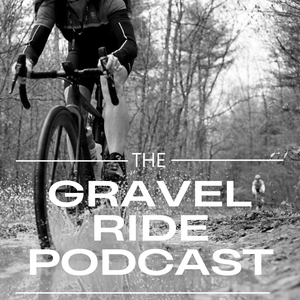
Get the free radio.net app
- Stations and podcasts to bookmark
- Stream via Wi-Fi or Bluetooth
- Supports Carplay & Android Auto
- Many other app features
Get the free radio.net app
- Stations and podcasts to bookmark
- Stream via Wi-Fi or Bluetooth
- Supports Carplay & Android Auto
- Many other app features


The Gravel Ride. A cycling podcast
Scan code,
download the app,
start listening.
download the app,
start listening.



